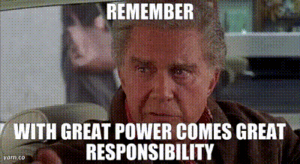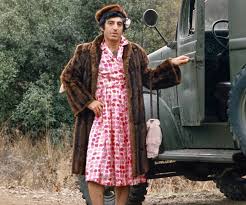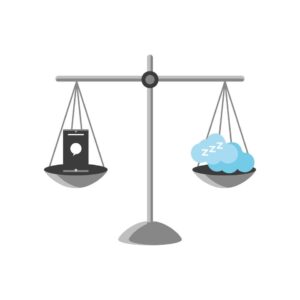(Anti)Social Media can not be inherently good or evil. That being said, the end users can be in a place in their lives where they can be easily persuaded, in an altered mental state or are just inexperienced in their lives. All three of those descriptions fit with the reality of youth. Who bears the responsibility of protecting our youth from the adverse effects of social media, a tool that can be used for good?

Policy makers, of course. In this commentary from the Canadian Pediatric Society and in the arguments made in Debate #2, they outline how policymakers need to investigate age verification and examine how data is collected from users who are minors. In the simplest ways, age verification can be easily defeated by changing your year of birth. However, some verification sites require proof of ID, like a driver’s license. Now, sharing that level of information taps into the issues of privacy and sharing too much information, an issue that developing minds struggle with, just like aging parents and grandparents who get scammed.

The debate sources also noted the need for academia to be involved with research on the effects of social media and mental health. As I read through the sources and listened to the debate, I began wondering about the compounding effects that social media (and screens) have on our youth. As noted in the Surgeon General’s report, youth would often be accessing content in the hours when they would be sleeping. So, as a youth with a negative body image or a low self-worth, they are limiting crucial developmental time and filling it with negative content (potentially). This can create addiction and lead to the creation of hate towards others.

Of course it can’t be all bad…can it? No. Like many answers in life, balance is key. What does balance look like and feel like? I can’t answer that at the moment. But I know that a unified effort is key to supporting the usage of social media and the healthy development of our youth in today’s world. I have anecdotal evidence to support the positive that social media can bring. My daughter stays connected to her friends who moved to Ontario through FaceTime and FB messenger. I have a student who moved to my school (small & rural) from an urban centre. Her social community from her old school doesn’t exist in her new school, but through social media, she is still able to stay connected and find companionship.

Overall, I believe families need to be responsible as the first responders and mentors to social media usage within our youth. Yes, as a teacher, I can provide lessons on digital literacy, but I can’t dedicate all my time to social media usage, nor am I around the child when they are accessing social media content. Policies are great, but not foolproof (see: drunk driving or school shootings). Tech companies will always have profit-first mentalities and can’t be trusted to make real and meaningful changes to social media (see: Big Tobacco). Social media can be an incredible tool for activism and support in our world – a world that is shrinking because of social media, but users of social media must be responsible and respectful.
Hi Dustin,
Thanks for your engaging and well-structured post. I also appreciated the Spider-Man reference (he is one of my all-time favourites).
I liked how you framed social media as not inherently good or evil, but as a powerful tool that depends on who is using it and the context. As you said, youth are particularly vulnerable due to inexperience, developmental stage, and social pressures. We have an ethical responsibility as educators, parents, and community members to keep them safe. Your critique of age verification systems was very interesting to me because it drew attention to the complex balance between protecting privacy and ensuring safety. It also raises an important question about whether we are asking too much of youth when adults are often victims of online traps. Your anecdote of how your daughter can stay connected to her friends across provinces is similar to something I commented on Jenna’s post about how those were friendships that we as children simply lost. Social media connections are very powerful when used properly. One reflective question that came to mind while reading your post is how we can encourage meaningful parent involvement in monitoring or guiding social media use, especially when some adults may not have any digital literacy themselves? Thanks again for your post as well as your debate presentation this week. I’m sure it wasn’t an easy topic to tackle on your own, but you did a wonderful job!
Hi Dustin,
You raise a valid point about changing your age for age verification on apps. When my son was younger, we set a daily time limit for his iPad. He would then go into the settings and adjust the time zone to extend his playtime. Children are intelligent and find creative ways to bypass parental controls. Your point regarding the importance of achieving balance also resonates with me. I wish I had the solution to this challenge as well. Even as adults, it is a real struggle to accomplish. I really agree with you that families need to be actively involved while also recognizing that effective guidance regarding social media should be provided from all aspects of a child’s environment. Teachers, coaches, parents, and the government all need to play a role in a comprehensive approach to safeguarding youth from the negative impacts of social media on their lives.
Jenna
Hi Dustin,
I couldn’t agree with you more (on so many of your points)! I really appreciated how you emphasized that families need to be the first responders when it comes to social media use. As teachers, we have a limited amount of time to dedicate to social media usage—and we are not there when children are scrolling late at night.
Your point about policy really stood out. Is setting an age limit or writing a social media policy truly the solution? Just because something is written into policy does not mean it will prevent harm. While policies can guide behavior and offer parents some structure (and maybe even relief), they don’t guarantee responsible use. Kids will still find ways around them. If our goal is to help children build personal and digital responsibility, we need more than just rules—we need as you mentioned, a unified effort that includes education, guidance, and ongoing support.
Thank you for sharing your insights!